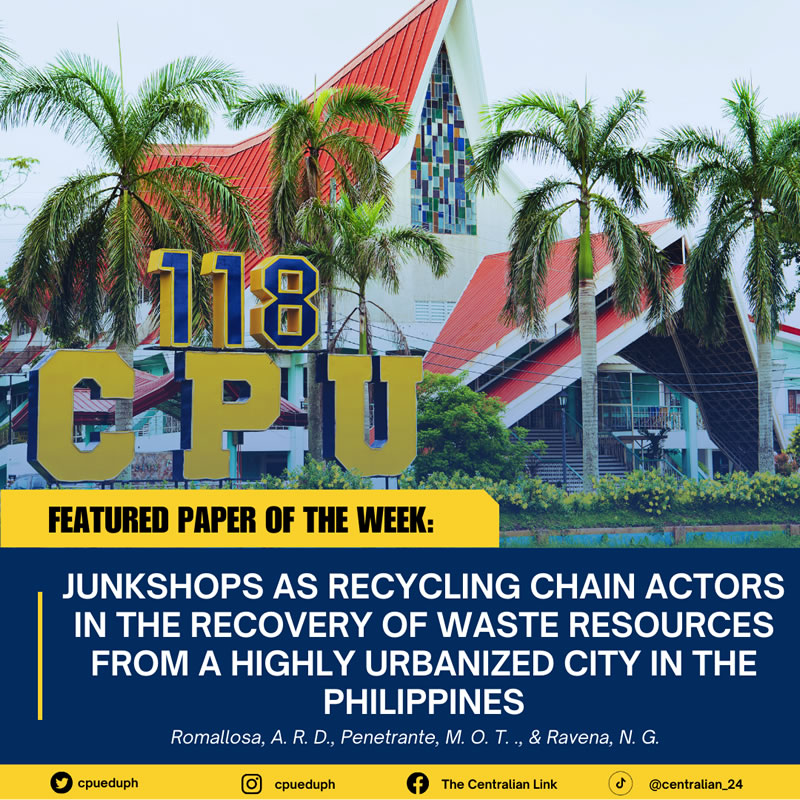
Aries Roda D. Romallosa (College of Agriculture, Resources and Environmental Sciences, Central Philippine University, Iloilo, Philippines); Mary O’ T. Penetrante (College of Business and Accountancy, Central Philippine University, Iloilo, Philippines); and Neil G. Ravena, (General Services Office, Iloilo City Government, Iloilo, Philippines)
Abstract:
This study was performed in order to identify the role and work mechanism of the 33 junkshops in the recovery of valuable recyclable materials for further processing by the next level hierarchy of recycling chain actors in Iloilo City, Philippines. Results revealed that more than 65% of the junkshops operate at 7 to 8 hours per day, hire 1 to 4 male workers, operate at an area of 50 to 1000 m2 with structures made of light materials, and with a capital outlay of <USD 1,818.18. The recyclables (paper, plastics, glass, ferrous and non-ferrous metals, and waste from electrical and electronic wastes or WEEE) recovered per month by all junkshops amounted to 1,584.83 metric tons (MT) and 115,470 pieces for glass bottles with an industry worth of USD 338,400.00. Ferrous metals have the highest monthly recovery weight at 608.26 MT or equivalent to USD 150,199 followed by papers and plastics. For plastic recyclables, high density polyethylene (HDPE) amounted to 110.68 MT per month equivalent to USD 34,383. Further analysis revealed that the junkshops assessed can recover valuable waste resources equivalent to 10.65% of the city’s daily waste generation or an equivalent amount of 33.49 MT d-1. In countries having similar conditions as that of the Philippines, recognition of their role and function can complement existing solid waste management (SWM) laws, including the national frameworks on extended producer responsibility in which junkshops and related SWM facilities can become part of product waste recovery programs. If junkshop operations and their existence are regularly monitored and capacitated with skills training, including the geographical presence of recycling industries, their impact on waste management could have been more essential for sustainable development and the conservation of resources.
How to Cite:
Romallosa, A. R. D., Penetrante, M. O. T. ., & Ravena, N. G. . (2024). Junkshops as Recycling Chain Actors in the Recovery of Waste Resources from a Highly Urbanized City in the Philippines. Applied Environmental Research, 46(3). https://doi.org/10.35762/AER.2024039
Issue:
Vol. 46 No. 3 (2024): Jul.-Sep.
